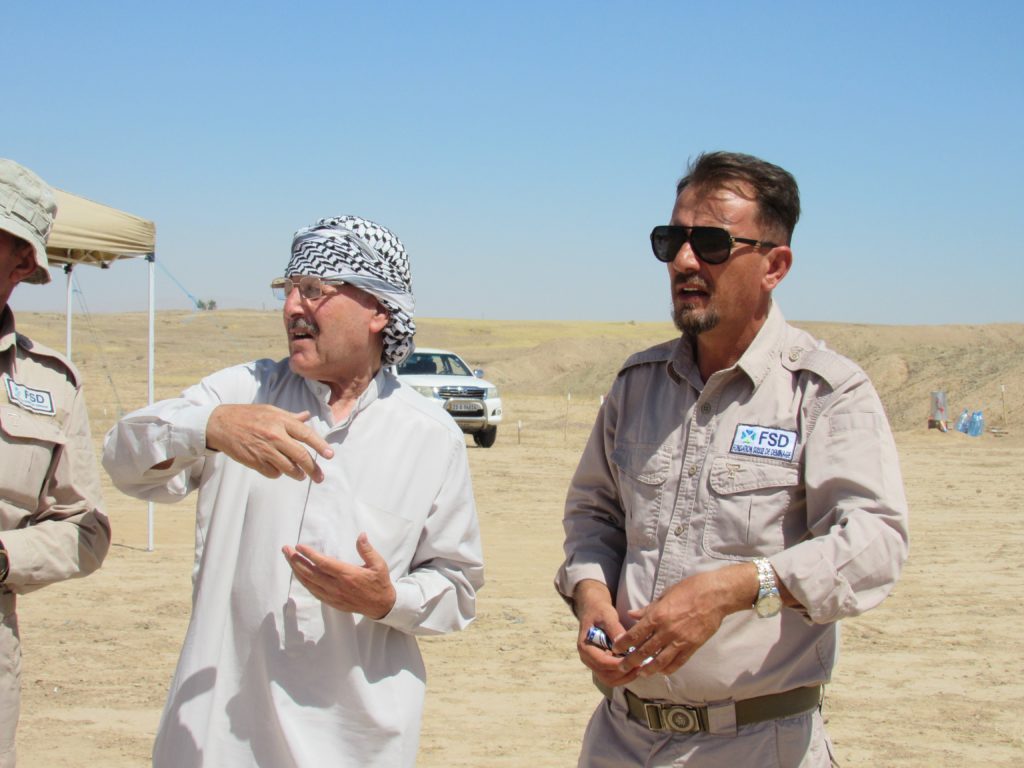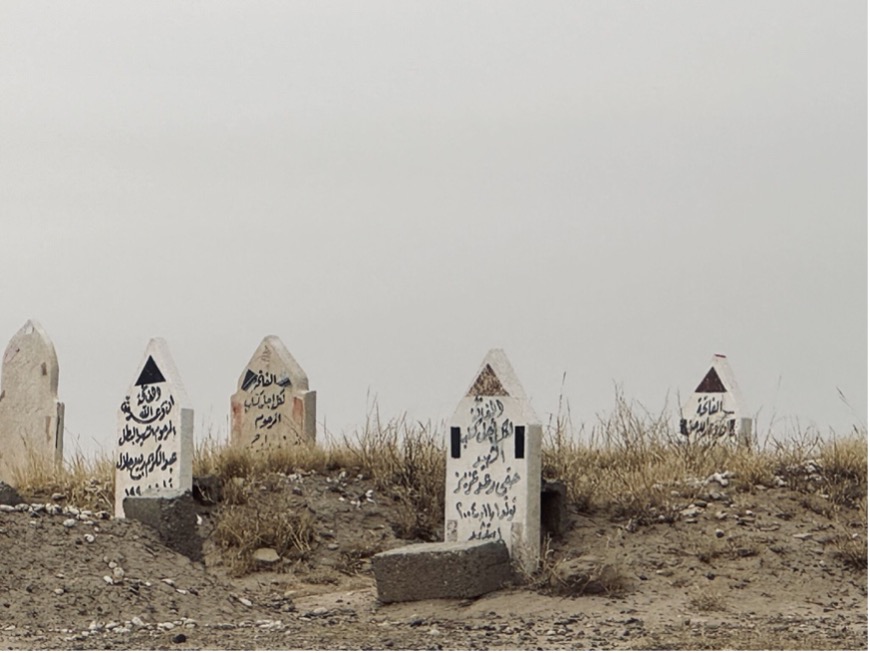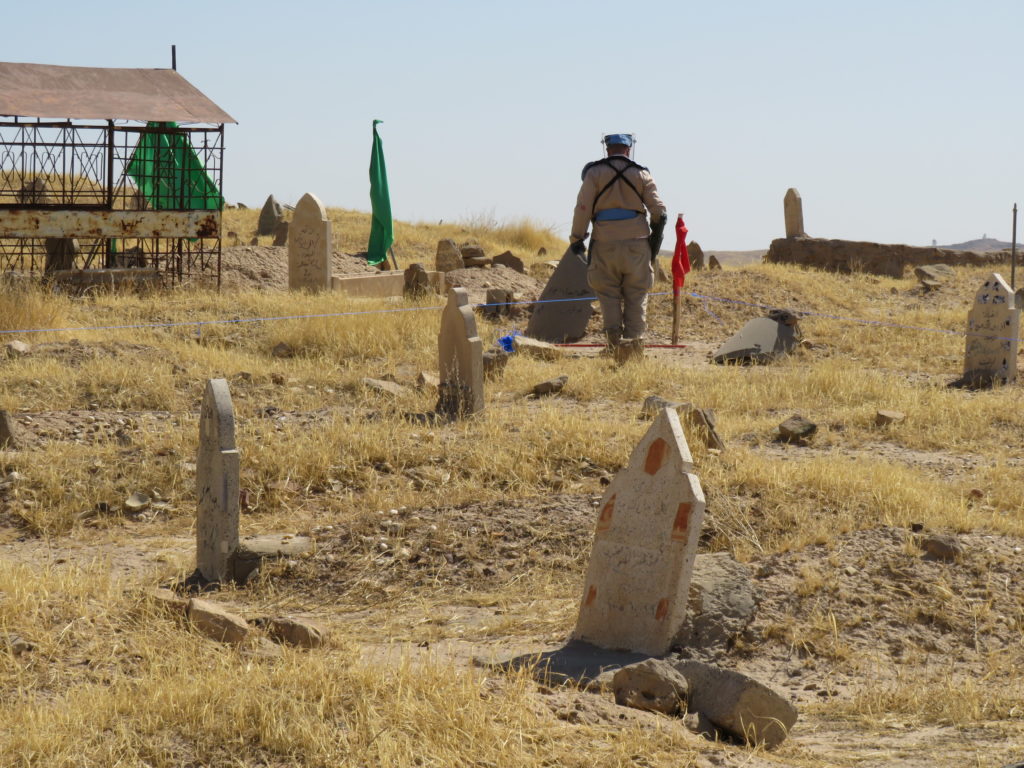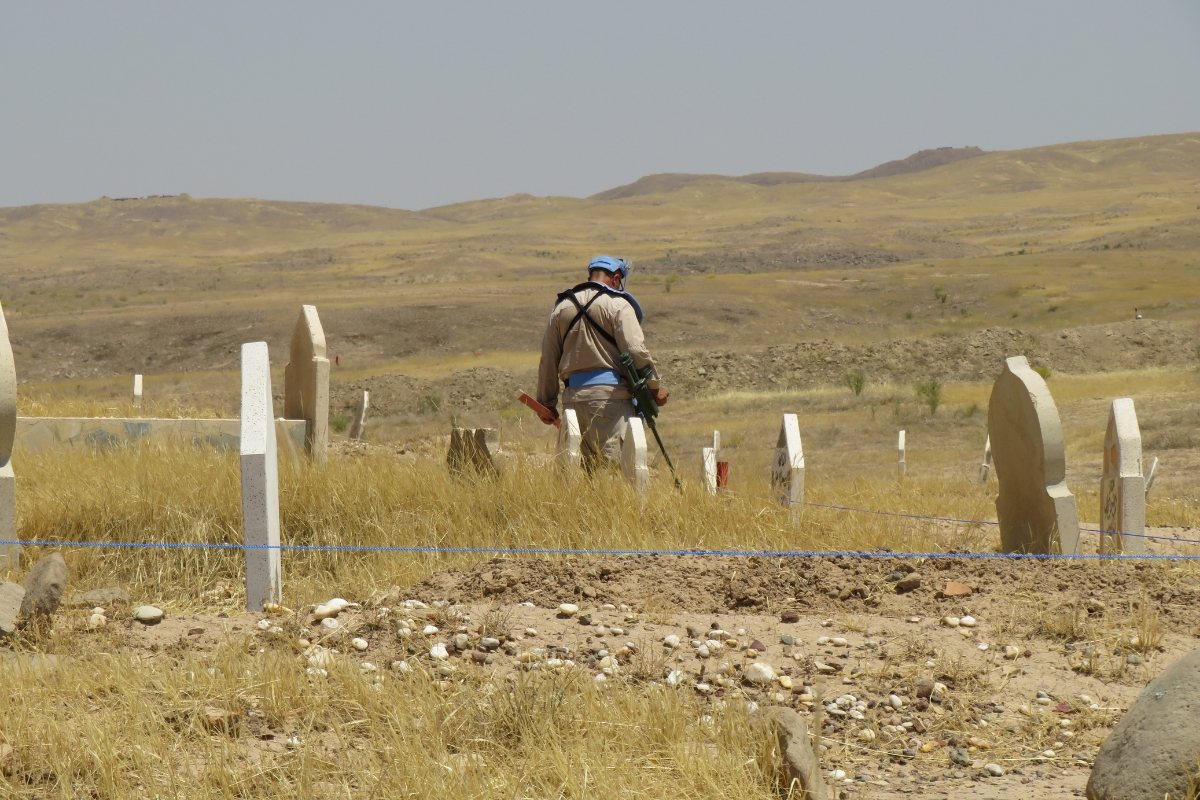Ten years ago, the village of Kubaiba fell into the hands of the Islamic State group. Located north-west of Kirkuk in Iraq, on the front line, the village was the scene of violent fighting. Some villagers attempted to flee, but not all succeeded. Thirty-five people have since died as a result of improvised landmines.

A resident of Kubaiba tells an FSD team about the events in his village.
Today, Kubaiba is once again at peace. Although the village has not yet regained its original population of 2,500, inhabitants are gradually returning and rebuilding their lives. However, nearly all the buildings and infrastructure are in ruins, and part of the village is still mined. The cemetery, where the thirty-five mine victims are buried, was until recently littered with improvised explosive devices. The path to the cemetery was completely mined, preventing families from paying their respects to their loved ones.
Thirty-five victims of improvised mines laid by the Islamic State group are buried in the cemetery of Kubaiba, a village in north-eastern Iraq.

FSD demining teams began clearing mines in the village of Kubaiba in April 2024. To date, one-fifth of the mined area has been verified and mapped, and more than 110 improvised landmines and explosive remnants of war have been removed. Notably, the cemetery has now been cleared of mines and is being restored, allowing families to pay their respects once again.

An FSD deminer inspects the cemetery of Kubaiba with his metal detector.
Around twenty FSD deminers are continuing their meticulous work, inspecting the village inch by inch, so residents can once again move around safely and look forward to a brighter future.



